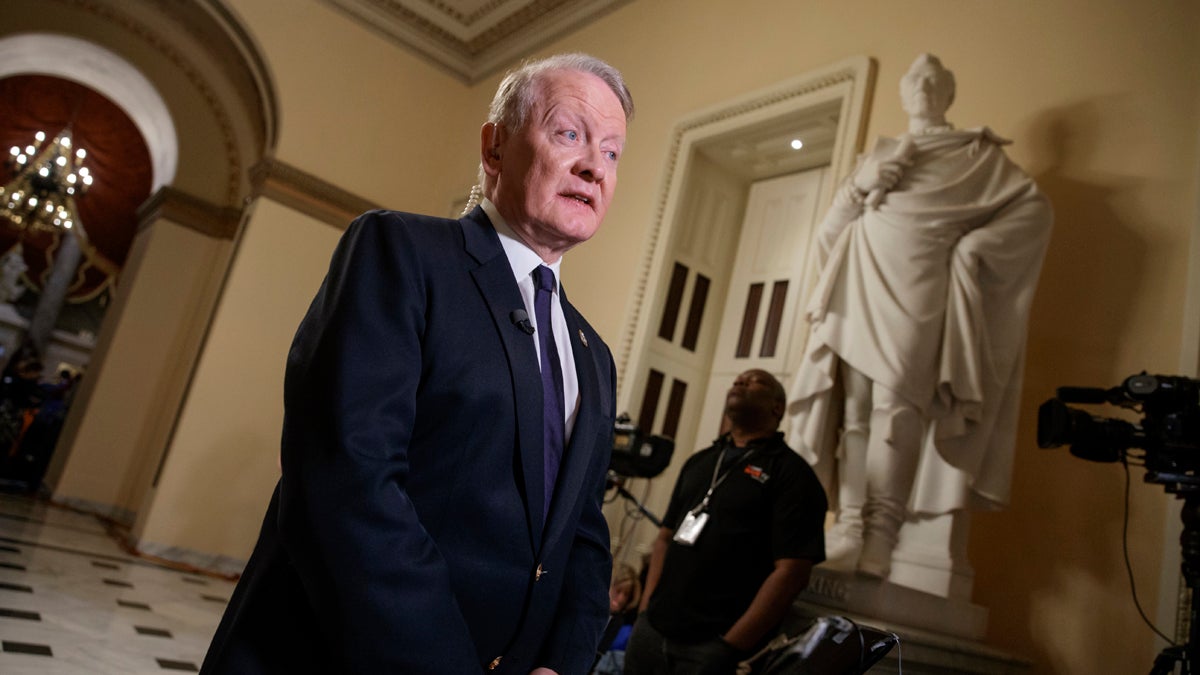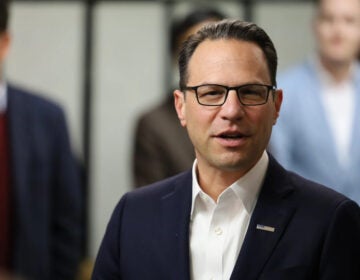Climate Solutions Caucus begins bipartisan quest to combat climate change
Listen
Rep. Leonard Lance, R-N.J., is a GOP moderate who wants to work to address climate change and is challenging many in his party on the issue. (J. Scott Applewhite/AP Photo)
Many Republicans deny climate change exists — or at least that humans are driving it. And many contend nothing can be done to combat rising sea levels.
New Jersey Congressman Leonard Lance disagrees with his party on the issue.
“I believe climate change occurs, and I believe human beings are at least in part responsible for it,” Lance said.
A new group in the U.S. House called the Climate Solutions Caucus consists of 13 Republicans and 13 Democrats who want to find any middle ground on combating climate change. Four Philadelphia-area representatives belong, and three of them are in the GOP. The Republican head of the group is Carlos Curbelo of Miami.
“The bipartisan climate solutions caucus, I envision as being the ideas factory where we can work with our Democratic colleagues to find, at first, some modest policy proposals that can help communities adapt to climate change and also to mitigate climate change,” said Curbelo.
How does Lance deal with members of his own party who deny climate science?
“I try to discuss the issue calmly and rationally and reasonably with my colleagues,” he said. “And I’m certainly willing to listen to their point of view.”
While the bulk of Republicans in the West and Midwest brush aside fears over climate change and insist fossil fuels are vital for their state’s economies, for Lance, it’s also an economic issue — in a different way.
“I believe that we want to make sure that we have strong industry on the coasts of the United States — including the East Coast, and within the East Coast, including the beautiful New Jersey beaches,” Lance said. “Our Shore region is one of the gems of the state and tourism is a significant industry in New Jersey because of the New Jersey Shore.”
South Jersey Republican U.S. Rep. Tom MacArthur also bucks his party when it comes to climate skepticism.
“I think that politicians shouldn’t tell scientists that they don’t know what they’re talking about,” he said. “So I think it’s sort of dumb to pretend like the climate isn’t changing. It is changing and we all know that.”
But Congress cannot do much to combat climate change, MacArthur said.
“So we need to pay attention to building standards. That’s a state issue, not a federal issue for the most part. But, the state and local communities need to make sure they build carefully to protect people,” he said. “And I think there are certainly some things that can be done, as I said, to make sure that we respond to the fact that the scientists make it clear that we’re in a period of climate change.”
But does MacArthur see a federal role in addressing it?
“Yeah, there’s a federal role, there has been a federal role. You know, where that role goes, for me is always the balancing of, let’s be responsible stewards,” he said. “Let’s make sure, on the other hand, we don’t get too far ahead of ourselves and destroy our own economy when other nations around the world maybe aren’t doing as much as we are.”
U.S. Rep. Pat Meehan, a Republican representing parts of five counties west of Philadelphia, is a another member of the new climate caucus. He said he hopes to convince his skeptical colleagues to focus on cleaning up the environment, not to debate climate science.
“Well I hope we can appreciate science first and foremost as a recognized confirmation that we’ve got to be doing more together to try to address what will be an issue if left unaddressed, said Meehan. He said now is the time to “work in a bipartisan fashion on things that we think we could do to make a cleaner environment for the next generation.”
President Donald Trump’s initial budget blueprint calls for slashing the budget of the National Oceanic and Atmospheric Administration — or NOAA — which collects key data tracking climate change.
One of the first tests for the climate caucus members will be trying to convince the government to keep monitoring the issue.
WHYY is your source for fact-based, in-depth journalism and information. As a nonprofit organization, we rely on financial support from readers like you. Please give today.




